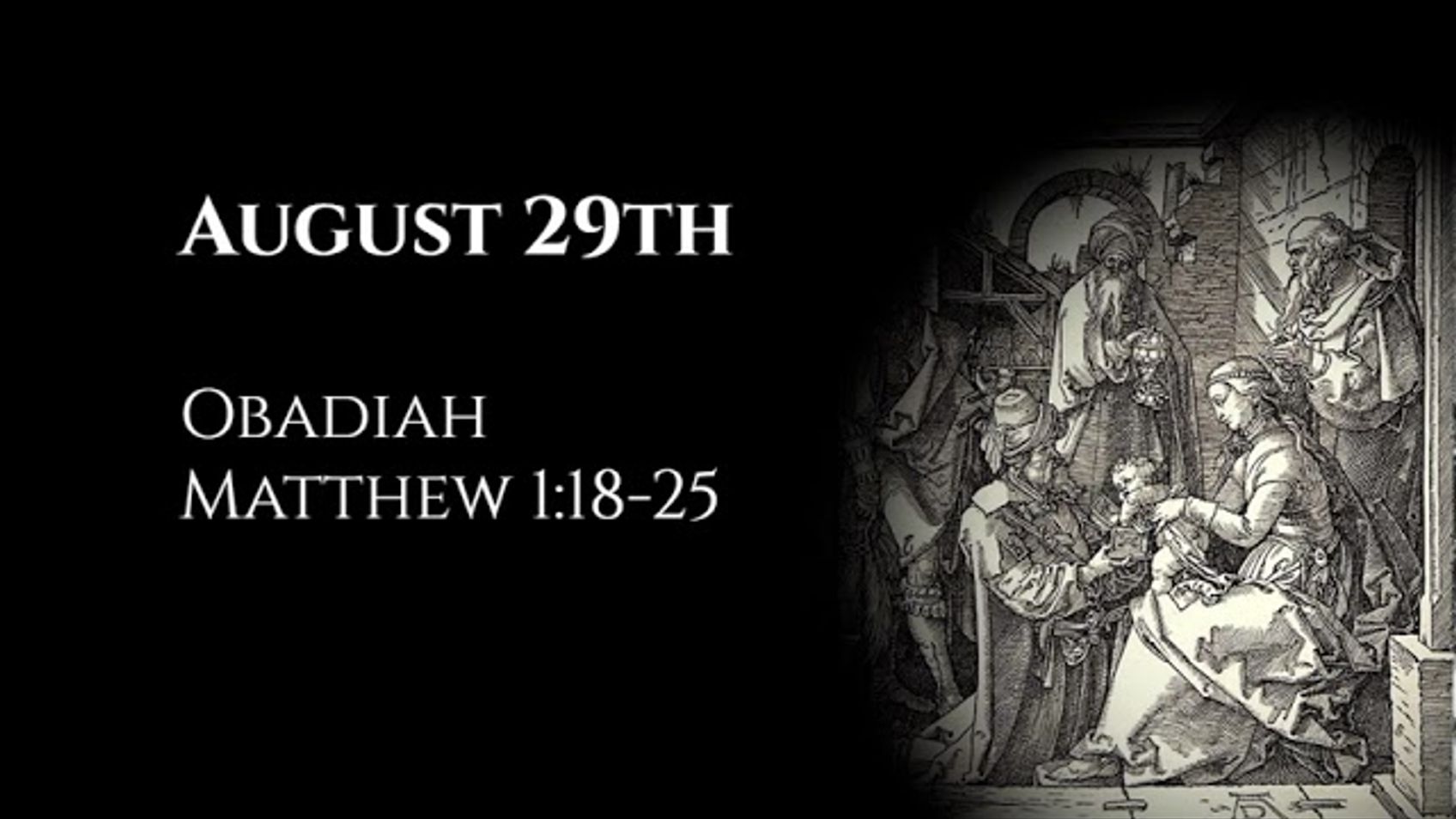August 29th: Obadiah & Matthew 1:18-25
August 28, 2021

Alastair Roberts
The book of Obadiah. The birth of Jesus.
My reflections are searchable by Bible chapter here: https://audio.alastairadversaria.com/explore/.
If you are interested in supporting this project, please consider supporting my work on Patreon (https://www.patreon.com/zugzwanged), using my PayPal account (https://bit.ly/2RLaUcB), or buying books for my research on Amazon (https://www.amazon.co.uk/hz/wishlist/ls/36WVSWCK4X33O?ref_=wl_share).
You can also listen to the audio of these episodes on iTunes: https://itunes.apple.com/gb/podcast/alastairs-adversaria/id1416351035?mt=2.
More From Alastair Roberts
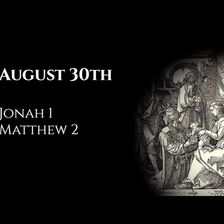
August 30th: Jonah 1 & Matthew 2
Alastair Roberts
August 29, 2021
Jonah flees from the presence of the Lord. The visit of the Magi.
My reflections are searchable by Bible chapter here: https://audio.alastairadversar
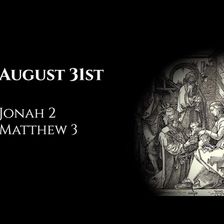
August 31st: Jonah 2 & Matthew 3
Alastair Roberts
August 30, 2021
Jonah's prayer from the deep. John the Baptist.
My reflections are searchable by Bible chapter here: https://audio.alastairadversaria.com/explore/.
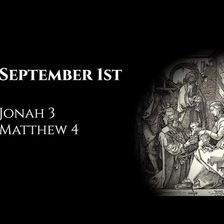
September 1st: Jonah 3 & Matthew 4
Alastair Roberts
August 31, 2021
Jonah preaches to Nineveh. Jesus in the wilderness.
My reflections are searchable by Bible chapter here: https://audio.alastairadversaria.com/explore
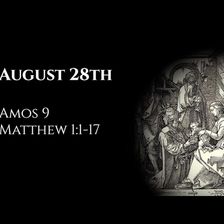
August 28th: Amos 9 & Matthew 1:1-17
Alastair Roberts
August 27, 2021
Shaking the nation. The genealogy of Jesus Christ.
My reflections are searchable by Bible chapter here: https://audio.alastairadversaria.com/explore/
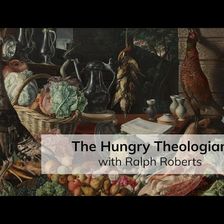
The Hungry Theologian (with Ralph Roberts)
Alastair Roberts
August 27, 2021
Ralph Roberts of the YouTube channel The Hungry Theologian (https://www.youtube.com/channel/UCQNK_Y9aRWuRerQXSzQz2QA/) joins me for a wide-ranging con
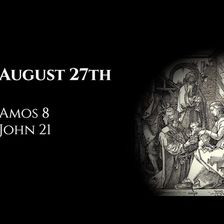
August 27th: Amos 8 & John 21
Alastair Roberts
August 26, 2021
The appearance of Jesus by the Sea of Tiberius. The vision of the summer fruits.
My reflections are searchable by Bible chapter here: https://audio.a
More on OpenTheo

Christmas Cranks and Christmas Blessings with Justin Taylor and Collin Hansen
Life and Books and Everything
December 17, 2025
If you are looking for a podcast where three friends talk about whatever they want to talk about and ramble on about sports, books, and grievances, th

Protestants and Catholics: What’s the Difference? With Chad Van Dixhoorn, Blair Smith, and Mark McDowell
Life and Books and Everything
November 26, 2025
How should Protestants think about the Catholic Mass? About the Eucharist? About the history and development of the papacy? In this panel discussion,

Is Greg Placing His Faith in the Wrong Thing?
#STRask
February 12, 2026
Questions about Greg placing his faith in his personal assessment of which truth claims best match reality rather than in the revelation of God in Jes

Are You Accursed If You Tithe?
#STRask
December 15, 2025
Questions about whether anyone who tithes is not a Christian and is accursed since Paul says that if you obey one part of the Mosaic Law you’re obliga

How Do You Justify Calling Jesus the Messiah?
#STRask
December 18, 2025
Questions about how one can justify calling Jesus the Messiah when he didn’t fulfill the Hebrew messianic prophecies, and whether the reason for the v

Sense, Sensibility, and Adam Smith with Jan Van Vliet
Life and Books and Everything
February 16, 2026
This year is a special anniversary for the United States as Americans celebrate 250 years of independence. But 1776 was an important year in more ways

Is It a Sin to Feel Let Down by God?
#STRask
November 6, 2025
Questions about whether it’s a sin to feel let down by God and whether it would be easier to have a personal relationship with a rock than with a God

Why Does the Bible Teach You How to Be a Proper Slave Owner?
#STRask
November 13, 2025
Question about why it seems like the Bible teaches you how to be a proper slave owner rather than than saying, “Stop it. Give them freedom.”
* It s

How Would You Convince Someone That Evil Exists?
#STRask
November 17, 2025
Questions about how to convince someone that evil exists, whether Charlie Kirk’s murder was part of God’s plan, whether that would mean the murderer d

Are Demon Possessions and Exorcisms in the New Testament Literal?
#STRask
December 11, 2025
Questions about whether references to demon possessions and exorcisms in the New Testament are literal, how to talk to young children about ghosts, an

Can You Recommend Good Books with More In-Depth Information and Ideas?
#STRask
January 22, 2026
Questions about good books on Christian apologetics, philosophy, and theology with more in-depth information and ideas, and resources to help an intel

Prove to Me That Jesus Is Not a Created Being
#STRask
January 26, 2026
Questions about why we should think Jesus is not a created being, and what it means to say God became fully human if part of being human means not bei

The Man on the Middle Cross with Alistair Begg
Life and Books and Everything
November 10, 2025
If you haven’t seen the viral clip, go see it right now. In this episode, Kevin talks to Alistair about the preaching clip he didn’t intend to give, h

Does God Hear the Prayers of Non-Believers?
#STRask
February 26, 2026
Questions about whether or not God hears and answers the prayers of non-believers, and thoughts about a church sign that reads (as if from God), “Just

Lora Ries: Border Security and Immigration Policy
Knight & Rose Show
December 7, 2025
Wintery Knight and Desert Rose welcome Lora Ries to discuss border security and immigration policy. They explore Biden's policy changes, like ending R
